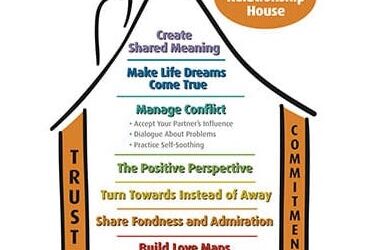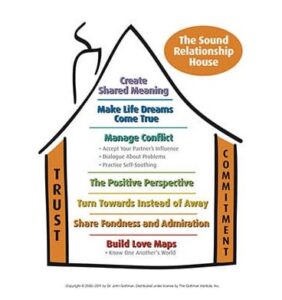My office carpet has gotten wet many times with the tears of single men and women in the throes of intense pain felt from romantic rejection, usually asking, “What is wrong with me? Why didn’t they like me? What did I do wrong?”
It always pains me to see good people blaming a break up on themselves, and taking it so personally. My view is that getting released from a relationship that wasn’t meant to be is the same as being set free from a trap, so that one may live on and find someone who cherishes and adores them. In the end, it is wonderful news.
If a date you were interested in rejects you, it does not mean you are defective, and I find trying to figure out the puzzle of why a waste of time, but I know most people feel compelled to do it. Most rejecters will never reveal the real reason why you weren’t the one for them, either because the reason would cause you pain, or they themselves don’t know. What we can know is that for whatever reason, you two were not a match, and that’s OK, because for someone else, you will be.
Sometimes I tell my grieving singles that they might look at themselves as a type of animal, say, a dog, and the person who rejected them is a cat. Neither animal is defective, they are just not a match, and for all kinds of completely acceptable reasons. When you meet another dog who connects with you, who gets you, it’ll be a go. You’ll know it is a go because it will be easy, like a hand slipping effortlessly into a soft and luscious leather glove. A great love is never a difficult fit that needs to be squeezed or adjusted any which way, it just fits.
I have girlfriends who are with men I could never be with. They adore their man, and the men are very nice, and I like them and enjoy their company. They would not be for me. This is how it works. I’m OK with those men saying, “You know, I like Becky, but she would not be for me.” They are cats, I am a dog, it’s OK.
In graduate school I did a lot of research on what predicts a happy marriage, and what predicts divorce. Marriage and Family Therapists need to know these things as they advise individuals and couples constantly, and we obviously want to steer them toward the thinking and behaviors that predict happy relationships. One thing we know is that the more similar two people are along the major categories, like education, background, social status, age, attractiveness, power, interests, life stage, hopes and dreams, the more likely their relationship is to work over the long term. Some people may see this as shallow, but it is not an opinion, it is what the research has shown us time and again.
Think about it: Older wealthy Harvard graduate with very young high school grad with no income; wealthy trust fund woman with man from a middle-class background who works as a teacher; a young person longing for a family with an older person who has already done that; physician female with a stay-at-home male, A wealthy and established gay man with a young man who just wants to attach his trailer-car to that man’s engine.
No one in these groups is defective, but the circumstances are worth considering as potential obstacles in the relationship, as it takes two very special, well-adjusted people to be able to treat each other equally and respectfully when there are huge power differentials between the two, and not that many people have such solidness in how they see themselves.
Before I married again in 2013, I was single for about 11 years, and during that time I was rejected numerous times, and I also rejected numerous men. Never did I reject a gentleman because he was defective or not good enough. It was always because in some way, shape or form, we were not a match. Dog, cat, that’s it. Maybe I wasn’t feeling it, maybe his personality wasn’t right for me, maybe he traveled too much, but these were not defects. It was just that his traits were not a fit for me. These men were good people and would fit very well with someone else.
When I got rejected by men, I usually had a good laugh about it. The laughter was more about the ridiculous ways they would reject me rather than the dumping itself, but as I got healthier individually I always welcomed the news that a man didn’t see me as a fit for him, as it freed me to be available for someone who would.
In my head, I imagined that there was a finite number of men I was supposed to meet in the dating world, all standing in a line, and The One would be standing at the end – so in my mind, the sooner I made it through the line the sooner I’d find him. No need to waste any energy about why the guys in the line rejected me, or why I rejected them, it all boiled down to us not being a match. The day did come when I found the guy at the end of the line, and it was exactly like I thought it would be – non-anxiety-provoking, solid, easy, respectful, caring, mutual.
When you operate from the assumption that you are not defective, you won’t take rejection personally anymore, so to prepare yourself for healthy dating you might ought to be working on that, if you’re not already there. We are all unique and unlike anyone else, a little bit weird or quirky, definitely imperfect, but a perfect fit for the life we were meant to live. One day, you’ll look up and be face-to-face with the person at the end of line, so be ready.





 Becky Whetstone is an Arkansas native and has a Ph.D. in Marriage and Family Therapy from St. Mary’s University in San Antonio, Texas. She is a Licensed Marriage and Family Therapist (LMFT) in Texas and Arkansas.
Becky Whetstone is an Arkansas native and has a Ph.D. in Marriage and Family Therapy from St. Mary’s University in San Antonio, Texas. She is a Licensed Marriage and Family Therapist (LMFT) in Texas and Arkansas. 






















































































































